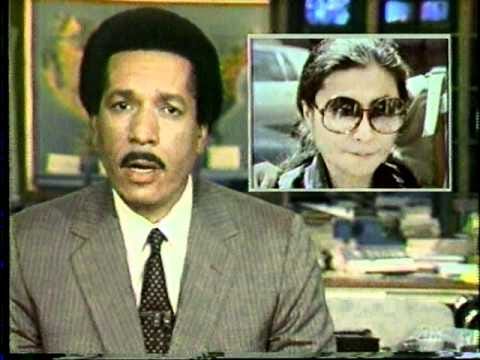Randall Maurice Robinson, the founding executive director of TransAfrica whose lobbying efforts in the 1980’s heavily influenced America's foreign policy towards South Africa's racist apartheid government, died earlier this week on the Caribbean island of St. Kitts.
Randall Robinson
Robinson, a native of Richmond, Virginia born in 1941, attended Norfolk State University, an HBCU, on a basketball scholarship before graduating from Virginia Union University, also an HBCU, in 1967. He later graduated from Harvard Law School and focused his legal career on social justice issues due to the lingering angst that he felt having grown up in the Jim Crow South.
Robinson, left, with former apartheid prisoner and future South African President Nelson Mandela circa 1990…
Robinson, along with his pioneering journalist brother Max Robinson of ABC News, arguably comprised the most influential Black family of the late 1970’s through the 80’s. When Max passed away in 1988 at the age of 49, Randall kept the family legacy alive through his indefatigable efforts against not just apartheid, but in raising greater awareness to the plight of Blacks across an African continent that has been raped and pillaged for centuries due to European colonization.
Max Robinson, Randall's journalist brother who became the first Black anchor at ABC News, reporting on the death of music star John Lennon in 1980…
In addition to being a lawyer and lobbyist, Robinson authored numerous books including his seminal work,"The Debt: What America Owes Blacks,” a tome that quickly rose up the NY Times best seller list when it was published in 2000. One of my favorite quotes from The Debt reads as follows:
“No race, no ethnic or religious group, has suffered so much over so long a span as blacks have, and do still, at the hands of those who benefited, with the connivance of the United States government, from slavery and the century of legalized American racial hostility that followed it. It is a miracle that the victims–weary dark souls long shorn of a venerable and ancient identity–have survived at all, stymied as they are by the blocked roads to economic equality.
Lest we forget that Robinson also conducted a highly publicized 27-day hunger strike in 1994 to protest America's longstanding policy of detaining and repatriating Haitian refugees seeking political asylum—a policy that was far stricter than the ones in effect for many of their fairer skinned neighbors from Cuba. Due to his efforts, the Clinton administration conceded to allow more access, but still not to the extent that the obvious racial distinctions between Cuban and Haitian immigration were fully ameliorated.
Randall Robinson spent much of his adult life fighting against systemic racism in every form, including the manner in which Haitian immigrants, shown being brutally apprehended two years ago in Texas, are treated by U.S. presidential administrations, both Democratic and Republican…
Randall Robinson and his wife, Hazel, left America for St. Kitts due in large measure to his beliefs that racism in the United States had morphed from the overt oppression of the Jim Crow era to a more covert—but still potent —form of oppression in the late 20th and early 21st Centuries.
The Robinsons…
In addition to his wife of 36 years, Robinson, 81, leaves to mourn his passing three children, Anika, Jabari and Khalea Robinson. Fitting of a legendary lawyer, lobbyist, and writer, Robinson penned his own epitaph with the following words in his book Makeda:
“…son, you won't need to talk to my headstone in order to talk to me. I won't be there. I'll be in the air and the Earth. I'll be in the stars that light the African heavens. I'll be watchin' over you and your family. My spirit will always be close enough to touch and protect you all. So, do not grieve for me. My body will die, but my soul will live on. For my soul cannot die. Always remember that my soul is the spark of God in me.”
Rest in eternal peace, Mr. Robinson…










Chuck, I so appreciate this piece. Randall Robinson was one of my main reasons for attending Virginia Union University. I loved his organization, TransAfrica and called on it for resources when doing a paper on Apartheid in the 9th grade. The people at TransAfrica were so helpful! Robinson received an honorary doctorate from VUU, when I graduated in 1997. I was able to tell him then how much he inspired me. Thanks again for writing this. His legacy lives!